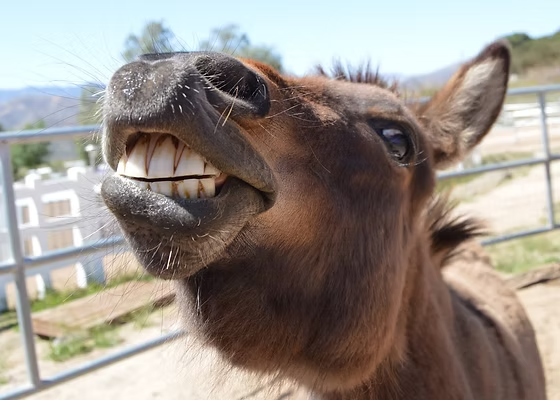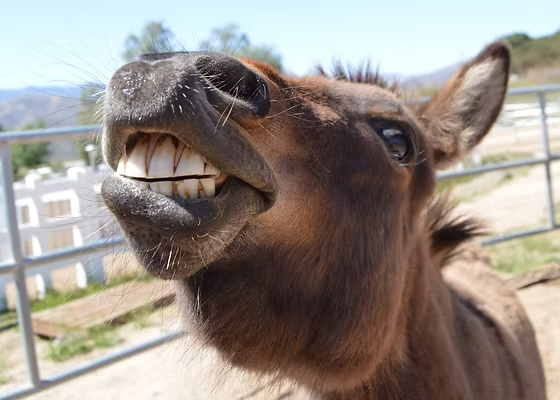Just days after the shocking revelation of over 900 kilograms of donkey meat being seized in Islamabad’s Tarnol area, After Islamabad, Donkey Meat Seized in Another City another similar and deeply disturbing incident has come to light. This time, the illegal and unethical trade of donkey meat was uncovered in Lahore, raising serious concerns about public health and the integrity of Pakistan’s food supply system.
This alarming incident unfolded when the Punjab Food Authority (PFA), acting on a confidential tip-off, conducted a surprise raid on the outskirts of Lahore. The area was home to what appeared to be a hidden and unauthorized slaughterhouse, located in a sparsely populated zone to avoid drawing attention. Upon entering the premises, the inspection team was met with an appalling sight: several dead donkeys, partially butchered, with their meat being prepared for sale.
The environment was filthy and unhygienic. Blood, animal waste, and leftover body parts littered the ground, while flies and a foul smell filled the air. There was no refrigeration, no cleanliness, and absolutely no regard for health safety or legal standards. Workers were found cutting and packaging the donkey meat, reportedly intending to pass it off as beef to unsuspecting buyers in various parts of the city.
According to reports, nearly 400 kilograms of donkey meat was found during the raid. Authorities believe this meat was destined for local butcher shops and roadside eateries in low-income neighborhoods, where consumers are less likely to question the quality and source of the meat due to limited affordability.
The meat was immediately seized and samples were sent for laboratory testing, which confirmed that the meat was indeed from donkeys. The slaughterhouse was shut down on the spot, and multiple arrests were made, including the suspected ringleader of the operation. Police have filed formal charges, and the suspects will face prosecution under food safety and criminal laws.

The Punjab Food Authority stated that this illegal operation was part of a larger network that could be active in multiple cities. Further investigations are underway to trace suppliers, transporters, and end-sellers involved in this dangerous trade. There are concerns that many other areas might also be unknowingly consuming such meat due to poor regulatory checks and lack of consumer awareness.
This is not the first time Pakistan has witnessed such an incident. The recent seizure in Islamabad had already raised eyebrows, but with this second case appearing so soon after, it is clear that the problem is far more widespread and organized than previously believed. Food safety experts warn that this illegal business not only deceives consumers but poses serious health risks. READ NEXT https://elevenpakistan.com/govt-decide-to-provide-e-bikes-on-installment/
Donkeys are not reared or certified for human consumption. They are typically used as work animals and are often exposed to unhygienic conditions, diseases, and harmful medications. Consuming donkey meat can lead to several health issues, including food poisoning, intestinal infections, hepatitis, and long-term digestive problems. It can also carry zoonotic diseases—illnesses that can transfer from animals to humans.
In response to growing public outrage, the Punjab Food Authority has launched a broader crackdown campaign. Inspection teams are now carrying out random checks at butcher shops, meat supply centers, and local eateries. Authorities are urging the public to remain vigilant and to report any suspicious activity involving meat processing or sales.
The public reaction has been intense and emotional. Many citizens took to social media to express their anger and disappointment. Consumers now fear whether the meat they’ve been eating is genuine, and are demanding tighter regulations and stricter punishment for those involved in such unethical practices.
The incident has also sparked a debate on the need for better food safety education. Many people are still unaware of how to identify substandard or fake meat. Experts are calling for consumer awareness programs that teach people what signs to look for—such as unusual meat color, bad odor, or improper packaging—and how to verify that their meat is being sourced from licensed and approved vendors.
The government now faces immense pressure to take this issue seriously and implement long-term reforms in food monitoring. Without regular inspections, stricter licensing, and public cooperation, these types of crimes may continue under the radar.
In conclusion, the seizure of donkey meat in Lahore, following the Islamabad case, has exposed serious loopholes in the country’s food regulation system. It has also brought to light how vulnerable consumers are when it comes to food safety. The authorities must act decisively—not just through arrests and raids, but by improving transparency, implementing food traceability systems, and raising awareness to prevent such unethical and harmful practices from repeating.
READ NEXT



